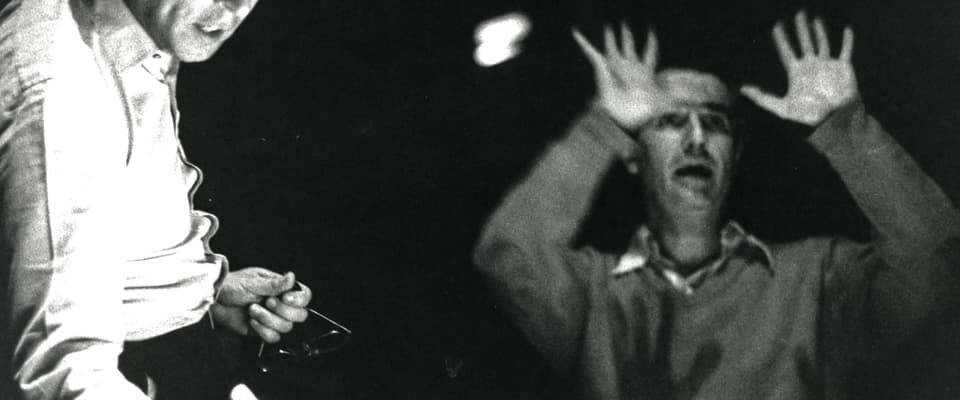Contents
Luigi Nono is one of the avant-garde composers who struck completely new tones from 1950 onwards. What drove the Italian?
They all came. Several thousand workers gather during their break from work and want to hear what Nono made of the noises. He had recorded the loud roar and hiss of the blast furnace in their steel factory. Now he presents you his tape collage. The workers then discuss it and begin to think about their working conditions.
“La fabbrica illuminata” is the name of the piece that Luigi Nono dedicated to the steel workers in Genoa in the mid-1960s. A prime example of participation, one would say today. Ultra-modern. That’s exactly what he was always interested in: Luigi Nono made music to create political awareness.
Composer by chance
Nono comes from a Venetian educated middle class household. When he is one year old, Benito Mussolini becomes the fascist dictator of Italy. This shapes Nono’s entire development, indeed his entire life. He wants to fight against oppression, war and social injustices.
Legend:
Two great musicians together: Composer: Luigi Nono (right) alongside star conductor Claudio Abbado in the 1970s.
Getty Images / Universal Archive / Universal Images Group
The fact that he does this as a composer is just a coincidence, he says. Because he connected with the musical avant-garde after the Second World War. It is the time of great departure. A young generation of composers also wants to create a new world musically.
The old expressions have had their day. Clear structures are needed, new composing techniques, and new aids such as electronics.
Back then in Darmstadt
An important center of the new avant-garde that is forming: the German city of Darmstadt. Three composers become the central figures at the so-called “Darmstadt Summer Courses for New Music”: the Frenchman Pierre Boulez, the German Karlheinz Stockhausen and the Italian Luigi Nono.
What initially begins as a wonderful and intense artistic friendship soon changes and differences become clear. Nono is the one who absolutely doesn’t want to do “l’art pour l’art” like his colleagues.
Nono wants to get out of the ivory tower. He wants to be on the street, among the people. And, for example, sets farewell letters from resistance fighters sentenced to death to music.
With music against the grievances
Nono says that the human, the political cannot be separated from the music. He is trying more and more urgently to put his finger on social injustices.
He does this with all the musical means at his disposal: wild orchestral impulses, sounds on the verge of becoming silent, with collages, electronics or music that is distributed throughout the room.
His life is exhausting, and so is his music-making. Ultimately, Luigi Nono may fall apart because of his own demands. “I have committed self-destruction,” he will say at the end. When he died in his mid-60s, he had to realize that even music couldn’t trigger revolutions.
What remains of him? His uncompromising attitude. His motto. Ascolta! Just listen!
Radio SRF 2 Culture, cultural news, January 29, 2024, 7:06 a.m.
